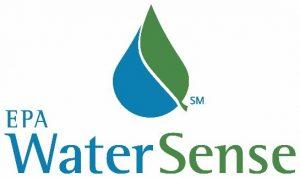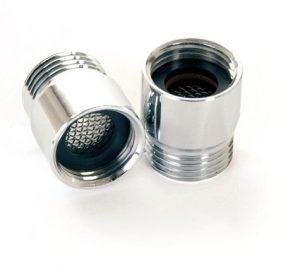How to Buy and Install Water-Efficient Plumbing Fixtures
As Floridians, water efficiency comes up a bit more often than it would elsewhere. And in the wake of natural disasters like Hurricane Irma, we really learn what our plumbing systems can handle (and what they cannot). In many cases, not only does water efficiency protect our ecosystems.
It protects our wallets and gives us peace of mind that our consumption will not cause a massive impact on an already “flooded” system.
Especially in Florida, water consumption matters. When it’s not hurricane season, Florida is prone to drought conditions. In the late summer, early fall, when we see heavier rains and storm conditions, our septic systems are under intense pressure. At times like this, being conservative with water is key to keeping your house and other homes clean!
But how can you tell which fixtures are a good choice for you and your family? The last thing you want to spend your time doing is pacing around the home improvement store, trying to determine what each company considers “efficient.” You’re almost certain to make a bad decision in that instance. …and it’s not like you can just go the store with your plumber, asking them to help you make an educated choice.
But your Orlando Fl plumbers can help point you in the right direction. Here is everything you need to know about installing water efficient fixtures into your home.
Hurricane Irma & Plumbing Problems
While over 12 million Floridians lost power after Hurricane Irma knocked down thousands of power lines, they also had to worry about their plumbing. Why? The destructive winds also caused massive damage to lift stations that pump wastewater away from homes and neighborhoods.
From South Florida all the way up to Jacksonville, many towns and cities with lift stations are asking residents to avoid using their toilets and showers (or to do so sparingly). An excess of water flowing through the pipes will cause wastewater to spill near lift stations across the state.
That’s a mighty mess for Florida to clean up!
Perhaps this is why more and more Floridians are starting to understand the importance of water conservation. California has already caught on and made some big changes for the Sunshine State to learn from.
As of 2015, California has the most efficiency-minded water fixture standards. This was in direct response to frequent drought conditions in the state. These standards changed the required maximum flow rates for urinals, residential and kitchen faucets, capping out at a usage of 2.2 gallons per minute (GPM). Projections suggest that these standards will save nearly 100 billion gallons per year.
Fixtures to Add to Your Home:
1. Performance Showerheads
The typical showerhead will use over 2 gallons per minute. Performance showerheads knock that number down to about 1.75 GPM

2. High Efficiency Toilet (HET)
Look for that WaterSense If you’ve been hesitant to replace your old clogged toilet, here is some incentive: pre-2006 toilets are usually consuming about 3.5 gallons of water PER flush. Older toilets used up to seven gallons per flush. A high-efficiency toilet sits around 1.3 GPF. The brands with the WaterSense label undergo testing for maximum performance and water conservation. Less water won’t equal a lesser flush.
3. Water- Saving Faucets
Like the HET, less water does not necessarily mean a less-powerful product. Faucets designed to save water drop the consumption from 2.2 GPM to 1.5 GPM.
 4. Shower Flow-Regulator
4. Shower Flow-Regulator

Attached to your current showerhead? Consider a shower flow regulator. That way, you can receive the benefits of lower water consumption without completely changing your shower’s fixtures. This regulator allows you to slow water to a trickle while lathering up in the shower.
5. Dual Flush Toilets
While this sounds like a great way to use EXTRA water, the dual flush toilet offers two different flushes, a half or a full. Or in some, a flush that you can customize. That way, if you don’t need to flush more than necessary.
But Isn’t It Expensive?
Not exactly! Sure replacing your fixtures does come with a bit of an upfront cost. But in most cases, you will see savings on your water and sewage bill in a month or two. While some state-of-the-art showerheads may run you hundreds of dollars, you can find decent models for $20 or less! That includes models with shower flow regulation. Do not be afraid to shop around and compare prices. If you choose functionality over appearance, you can make your home much more water efficient, without going over budget.
In many cases families can save over $100 per year on water and sewage costs by switching to water efficient fixtures. Home Depot provides a handy calculator to get a personalized estimate of your savings.
Water Efficiency in Florida
While there is not any current legislation regarding plumbing fixtures in the State of Florida, the Sunshine State does lead the South in overall water efficiency. In fact, as of May 2017, urban areas of Florida have decreased their water consumption significantly over the last 30 years. Experts believe that the use of water-efficient plumbing technologies has contributed to this decline.
To further your water conservation efforts, try these tips in your home:
- Lather your hands in soap before turning on the water. That way, you only turn on the faucet once per wash.
- Turn off the water while brushing your teeth. Leaving it on while brushing can waste up to five gallons of water per instance.

- Shorten your showers. This is especially true when storms like Hurricane Irma roll around. Even a five minute shower can use 15-25 gallons of water! Imagine how much a 30 minute shower consumes. To keep your shower times short, pick a song that clocks in around 4-5 minutes. Start the song right before you get in the shower, and finish up as soon as it finishes.
- Call a plumber as soon as you notice leaks. A slow drip from your showerhead can quickly add up to gallons of water, and dollars on your water bill. Check the knobs to ensure the water is fully turned off. If the dripping persists, call an Orlando plumber to inspect the issue.
After you finish picking up all the trees Hurricane Irma knocked down, ask yourself: Is it time to replace that leaking showerhead with a more efficient model? Not sure which bathroom plumbing fixtures to add to your home? Call professional plumbers Adams and Son Plumbing for assistance with your home plumbing issues, including fixture installation. Save money and our ecosystem, with just a few small upgrades.


